WP Legal Pages for Creating FTC Affiliate Disclosure: A Blogger’s Guide
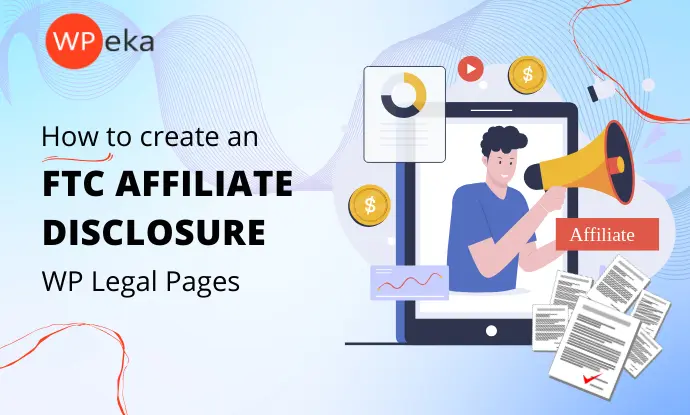
Did you know that not having an FTC Affiliate Disclosure on your website can land you in some serious legal problems?
Today online content creators, bloggers, influencers, and businesses have the power to shape public opinion and influence consumer choices.
That is why The Federal Trade Commission (FTC) provides guidelines and regulations regarding when and how these disclosures should be made for individuals and businesses involved in online marketing.
In this detailed blog, we will help you set up clean FTC Affiliate disclosure statements to build maximum credibility.
Let’s begin!
Table of contents
What Is an FTC Affiliate Disclosure?
The Federal Trade Commission (FTC) is a regulatory agency in the US responsible for enforcing consumer protection laws. Primarily they focus on the truth in advertising in traditional media and digital platforms.
An FTC disclosure is a statement that discloses any material connections or financial interests between a content creator and the products or services they endorse or review.
This means if you receive compensation, free products, or any other form of incentive to promote a product or service on your website, you must disclose this information to your audience.
Why Is an FTC Affiliate Disclosure Necessary?
FTC disclosure is a regulatory requirement and a useful practice that benefits you and your audience. It promotes trust, credibility, and ethical conduct.
Here are some potential consequences of not using an FTC affiliate disclosure:
- Legal Penalties: Non-compliance with FTC guidelines can result in fines and legal action. These fines can range from thousands to millions of dollars, depending on the nature and scope of the violation.
- Cease and Desist Orders: The FTC can issue cease and desist orders requiring you to stop engaging in deceptive advertising. Consequently, this can damage your business and online presence.
- Loss of Trust: If you’re found to violate FTC regulations, your audience may lose trust in you. This loss of trust can lead to a decline in credibility, audience engagement, and revenue.
- Negative Publicity: News outlets and social media may pick up on violations, potentially damaging your reputation and brand image.
- Decreased Business Opportunities: Other businesses and advertisers may be reluctant to work with you if they perceive you as someone who doesn’t stick to ethical advertising practices.
Similarly, here are some of the benefits of including FTC affiliate disclosures:
- Legal Compliance: From a legal standpoint, complying with these regulations can save you from legal consequences and fines.
- Transparency: Transparency is essential for building trust with your audience. Visitors are more likely to engage with your content and trust your recommendations when you’re upfront about any potential biases.
- Enhanced Credibility: When users see that you’re honest about your affiliations, it enhances your credibility.
When Should You Use an FTC Disclosure?
Knowing when to use an FTC disclosure is necessary to maintain transparency and comply with legal requirements. Here are some common scenarios when it’s necessary:
- Affiliate Marketing: If you participate in affiliate marketing and earn a commission for promoting products or services.
- Sponsored Content: Any content that is sponsored, meaning a company has paid you to create it, should be accompanied by an FTC disclosure.
- Free Products or Services: If you receive free products, services, or even trips in exchange for a review or endorsement on your website, disclose it.
- Employment or Ownership: If you have any employment or ownership in a company whose products or services you promote, this should be disclosed.
Now that we know about the potential damages of not including an FTC disclosure, Let’s get to the solution!
WP Legal Pages: Your Website’s Legal Guardian

Crafting an adequate FTC affiliate disclosure is essential. It should be clear, noticeable, and understandable for your audience. But at the same time hiring a law agency can be expensive, time-consuming, and complex.
WP Legal Pages is a popular legal page generator that helps you create professional policy pages tailored to your requirements across multiple geographies.
Using WP Legal Pages you can create pages for professional privacy policies, terms of use, terms & conditions, eCommerce returns & refund policies, affiliate disclaimers & more.
Features and Benefits of WP Legal Pages
WP Legal Pages has over 25+ expert-vetted legal pages and more than 3,70,000 downloads. Additionally, bloggers, affiliate marketers, corporate websites, e-commerce stores, and consultants use WP Legal Pages for its ease of functionality and legal requirements.
Let’s explore more features:
- Library of Legal Templates: WP Legal Pages Pro offers a wide selection of pre-designed legal templates, including privacy policies, terms and conditions, disclaimer statements, FTC affiliate disclosures, and more. Additionally, these templates cover a range of legal requirements and can be easily customized to suit your specific needs.
- Announcement Banner: Display announcement banners on your website whenever any legal pages have been updated
- Responsive Pop-Ups: WP Legal Pages offers an option to create functional and responsive popups. These pop-ups can showcase forced agreements or privacy policies to the users. Also, you can code them manually or use the shortcodes to create a pop-up.
- Age Verification popup: This allows you to display an age verification popup on your website to make sure that your users are old enough to browse your website content.
- Cookie Bar: You can add a cookie bar on your website to inform your visitors about the cookies you use and the information you collect.
- Guided Wizard: This interface guides you to add necessary sections to your policy pages making the process seamless.
WP Legal Pages simplifies the process of creating and maintaining legally compliant documents on your WordPress website. Moreover, it offers a range of features that help protect your website interests and improve transparency with your audience.
How to Add an FTC Affiliate Disclosure with WP Legal Pages?
Let’s have a look at a step-by-step guide to add FTC affiliate disclosure with WP Legal Pages:
How to Install WP Legal Pages Plugin?
Head over to your WordPress Dashboard
Click on Plugins > Add New

Search for WPLegalPages on the search bar

Click on the Install Now button, and then activate

The WP Legal Pages plugin is now activated and ready to use.
How To Activate WP Legal Pages Pro?
The FTC Disclosure Template is inclusive of the premium plugin. Download the zip files of the product you purchased from WP Legal Pages Pro, along with the API key, and Product ID.
In the Plugins menu, select Upload Plugin.
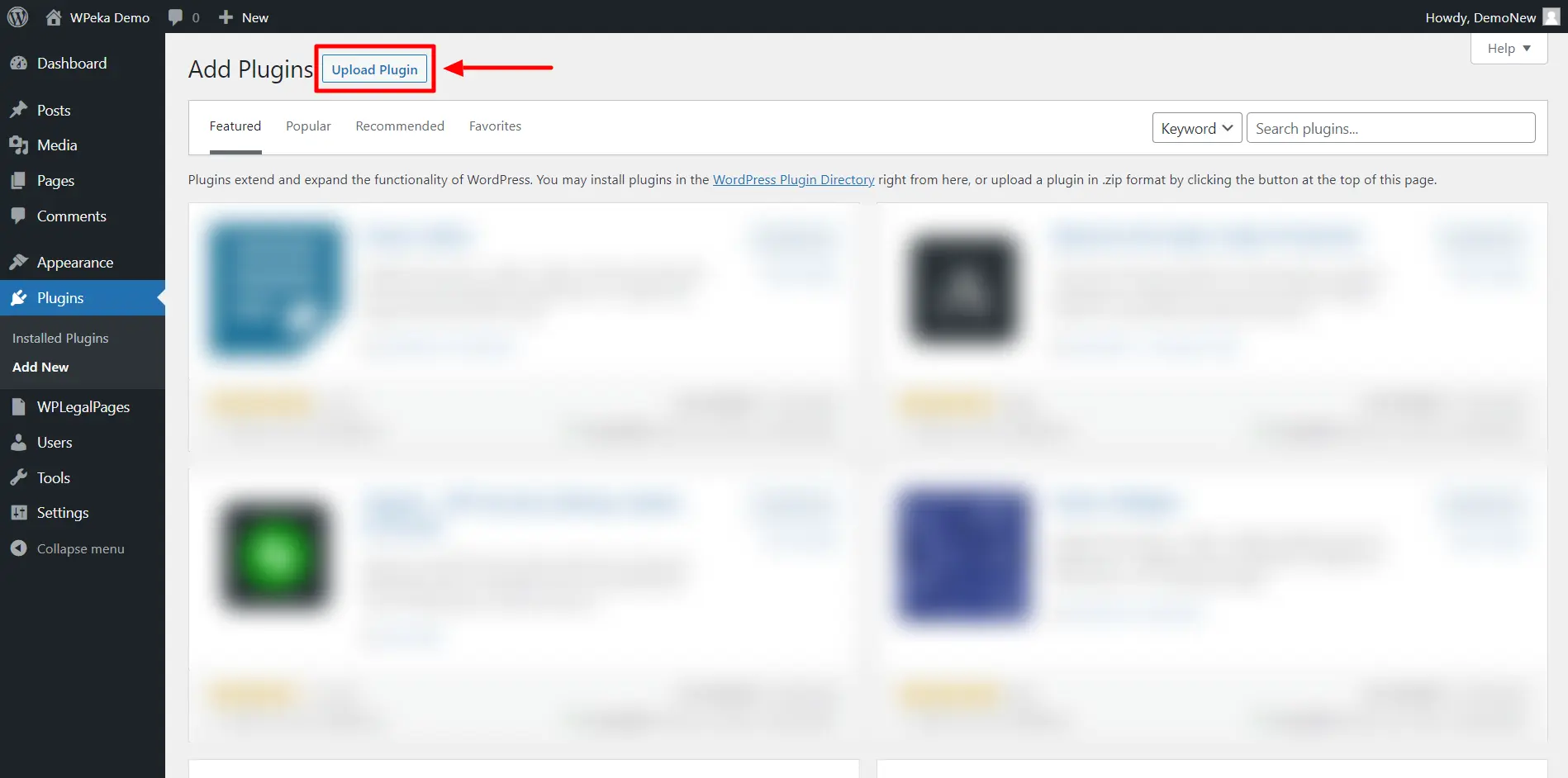
Select the downloaded WP Legal Pages Pro zip file and Click on Install Now

Install and Activate Plugin.

Click on Activate your License Key.
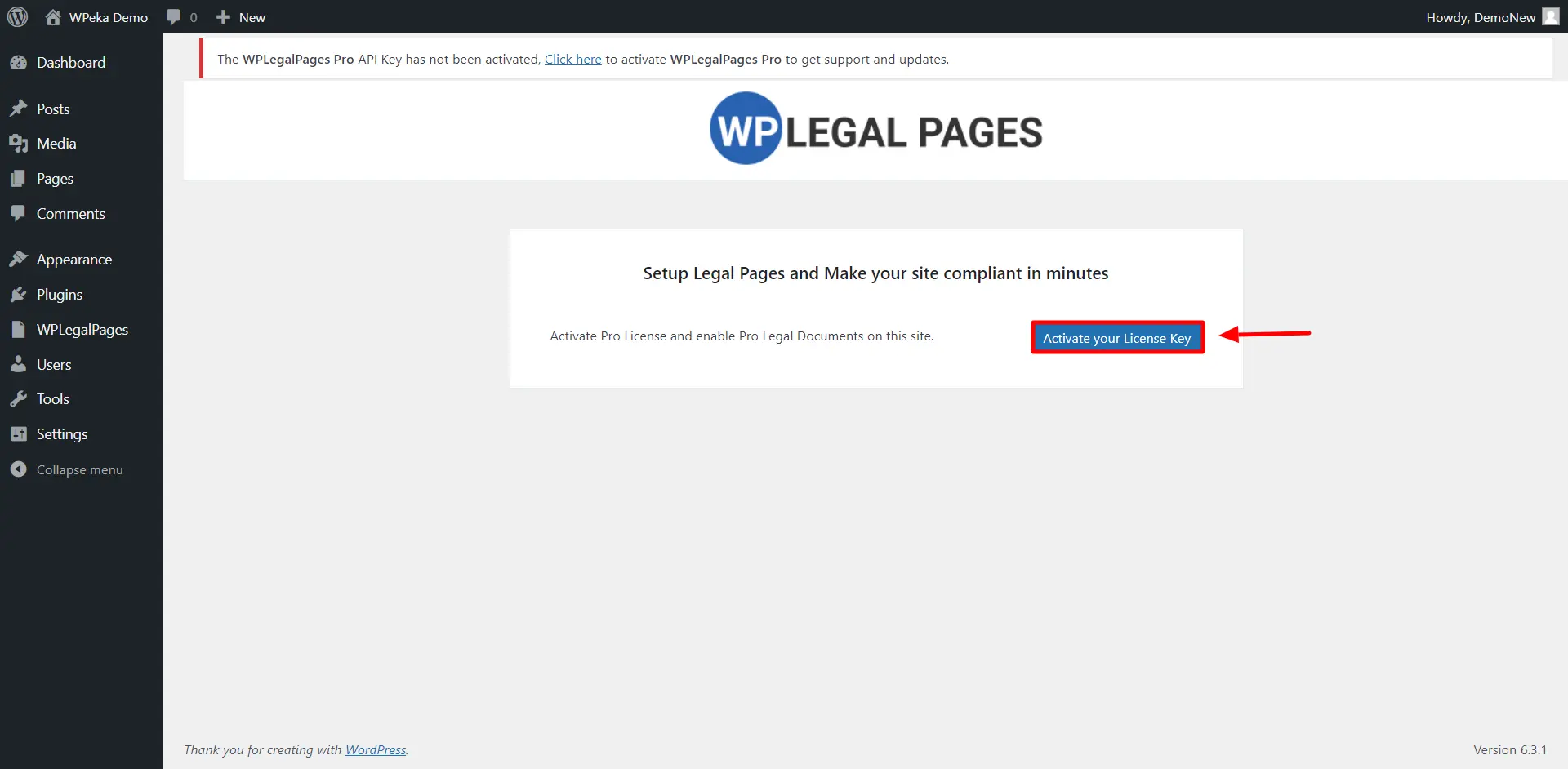
Enter the API Key and Product ID that you purchased.
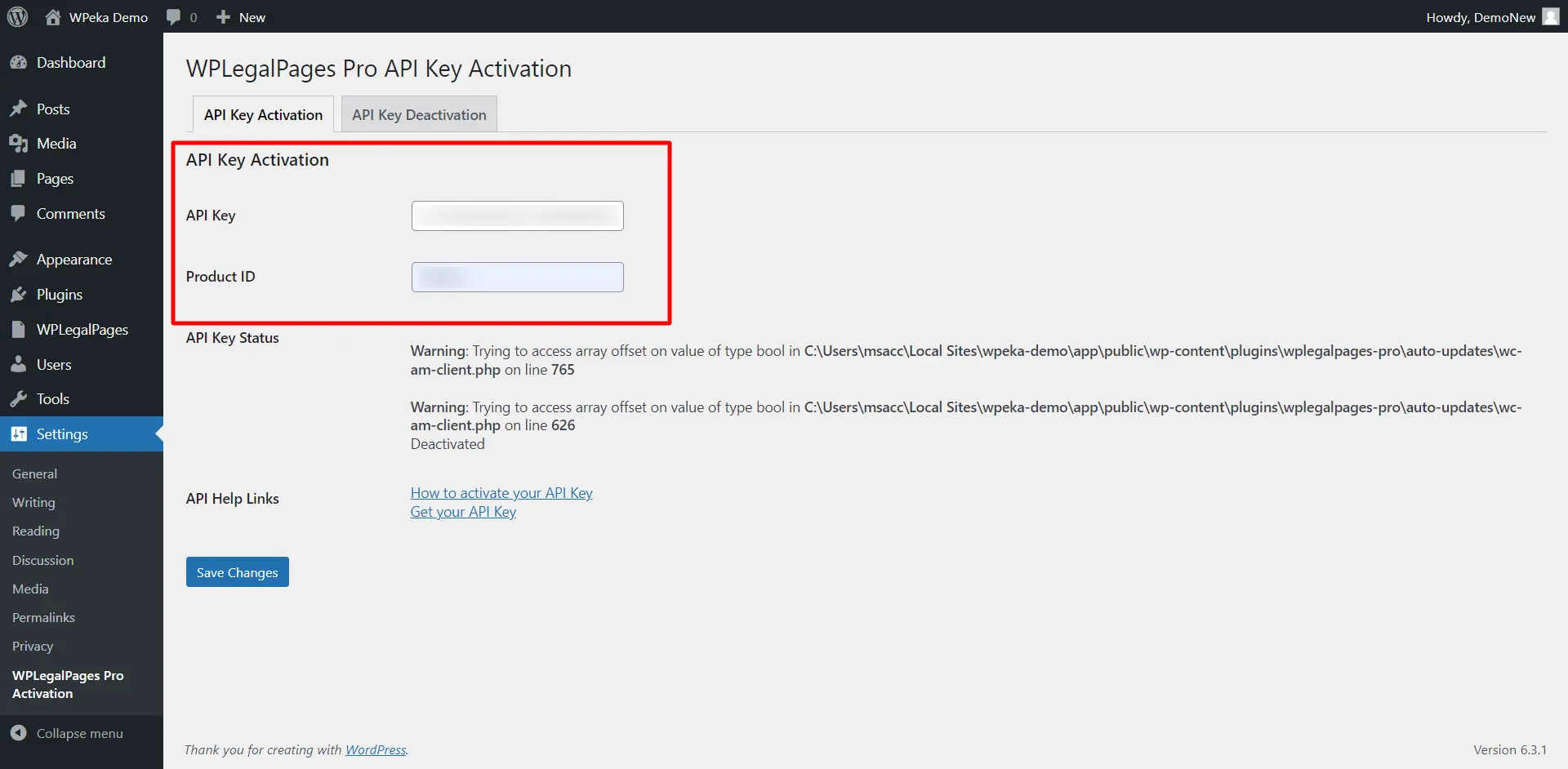
WP Legal Pages Pro Plugin is installed and activated!
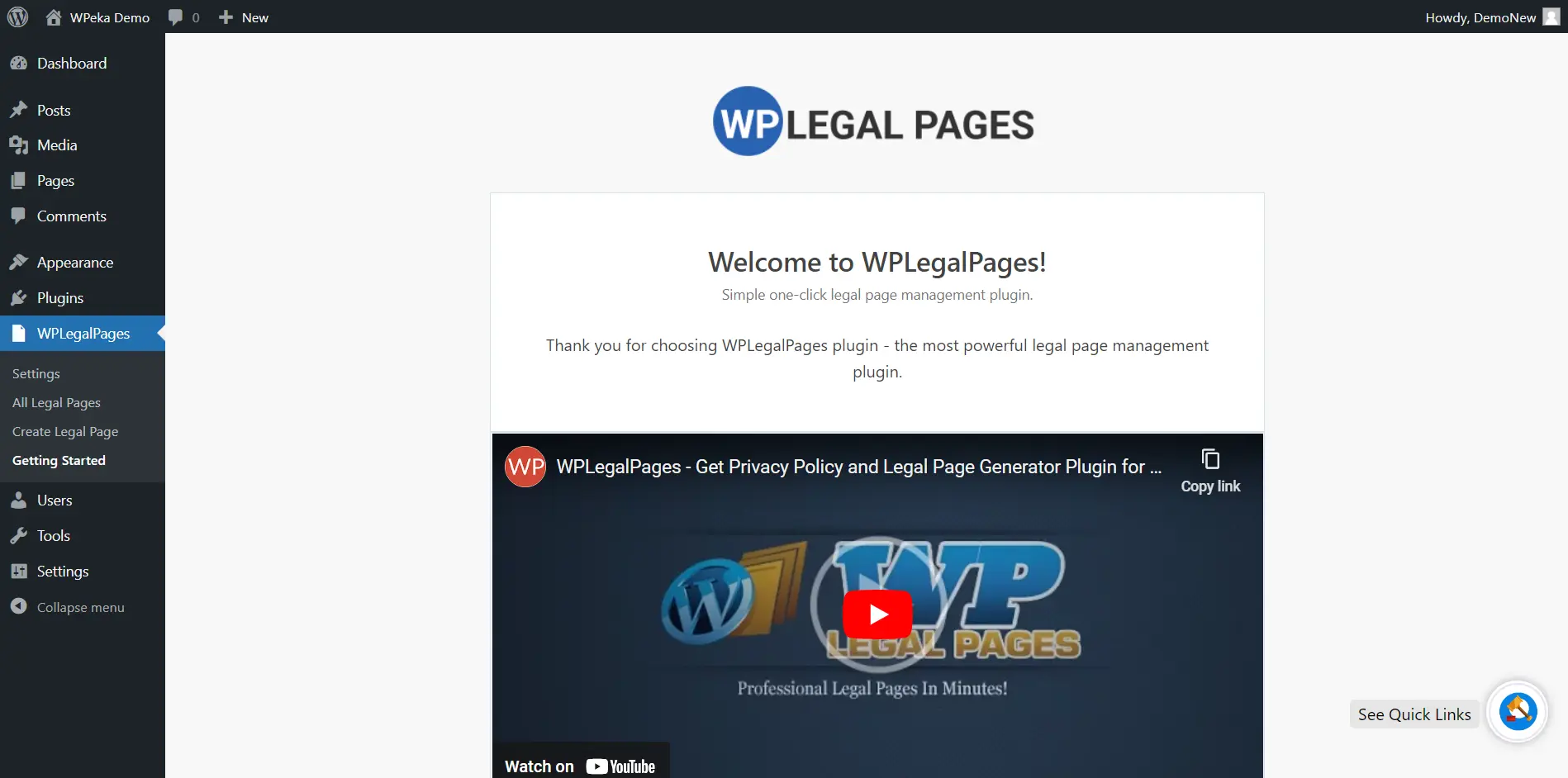
How to Create the FTC Affiliate Disclosure Page?
Head over to your WordPress Dashboard.
Click on WPLegalPages > Create Legal Page
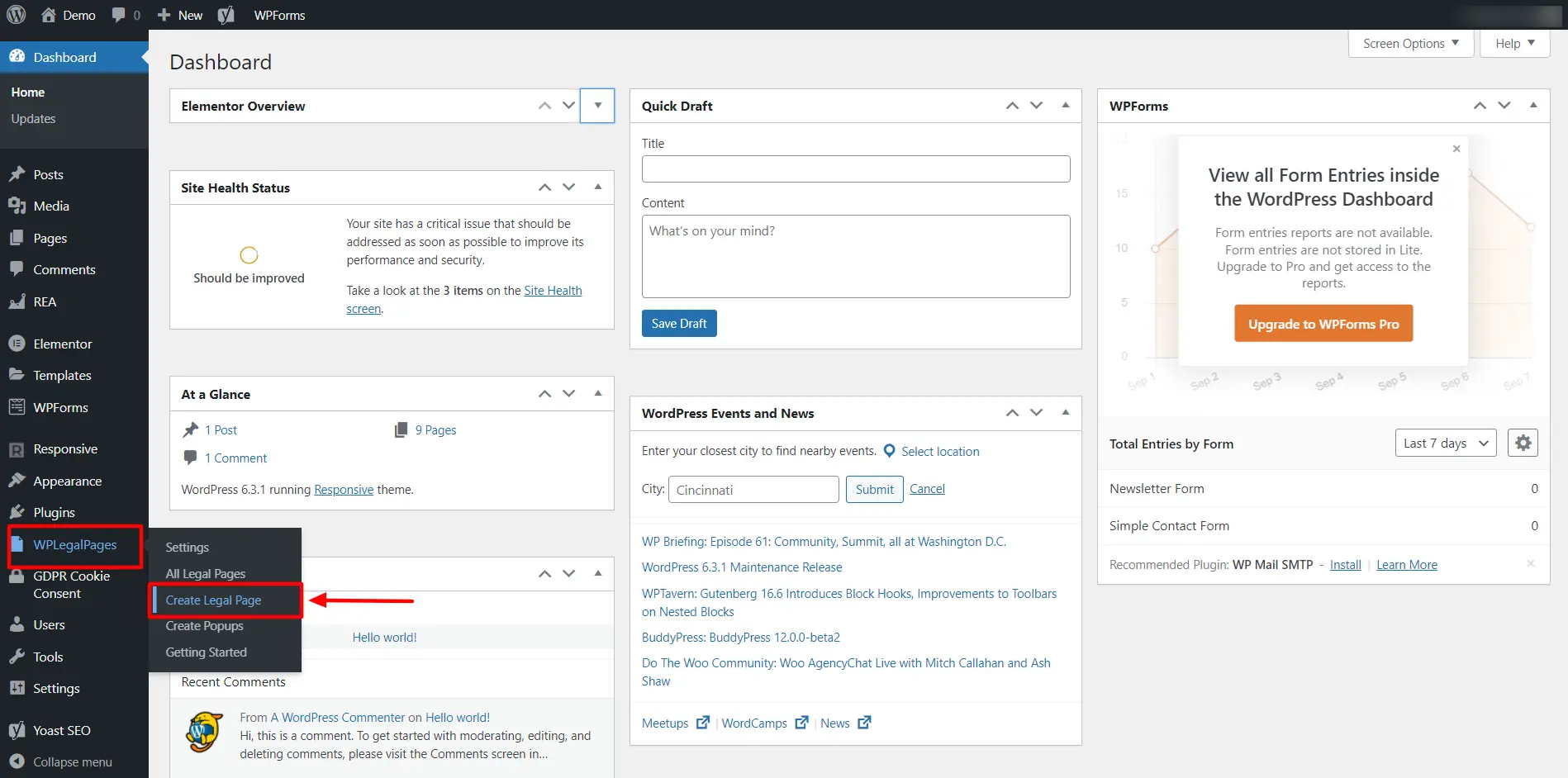
Select the FTC Statement Template.

Review your language and domain preference, and click NEXT.
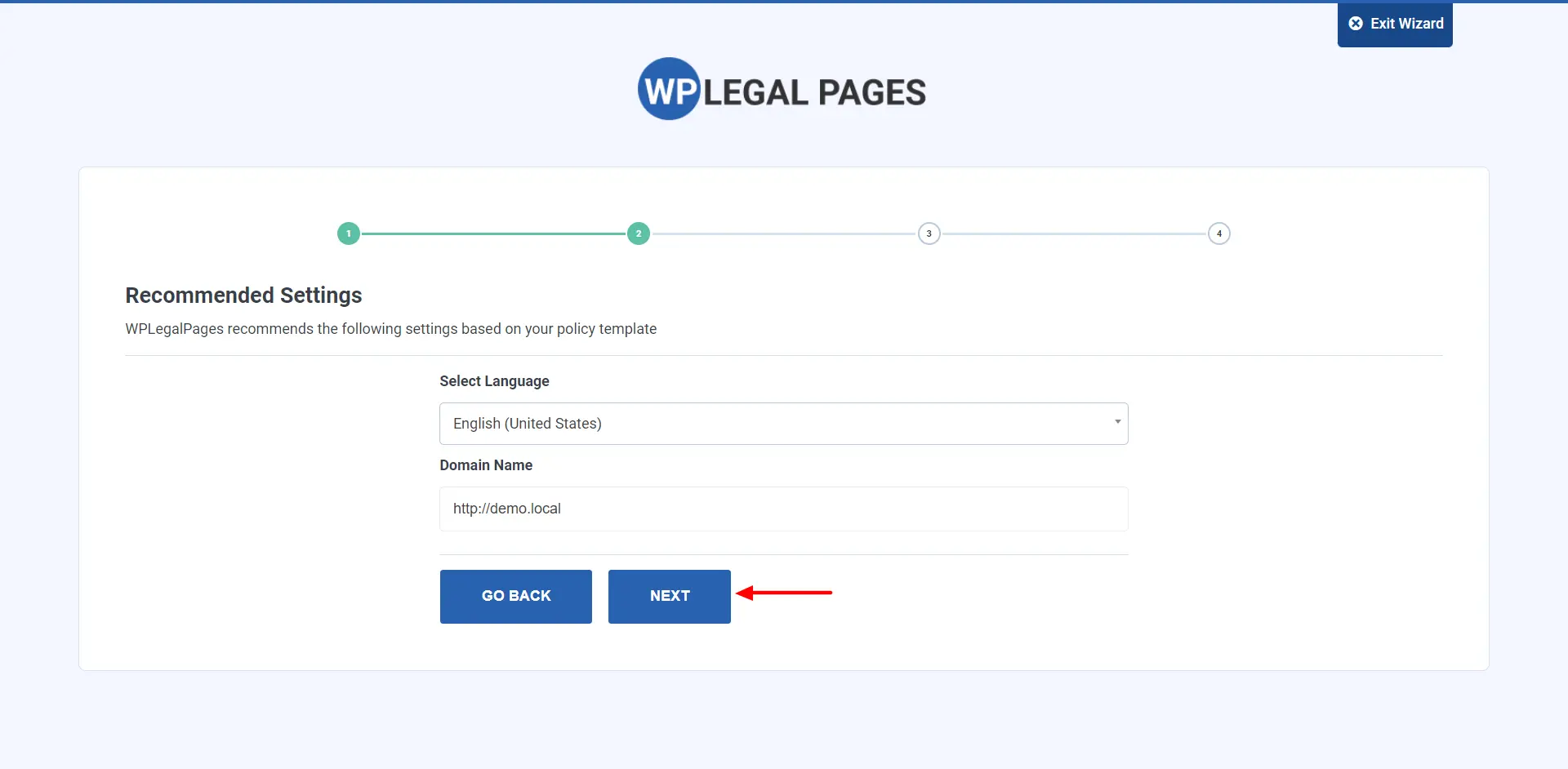
Review and click on CREATE AND EDIT.
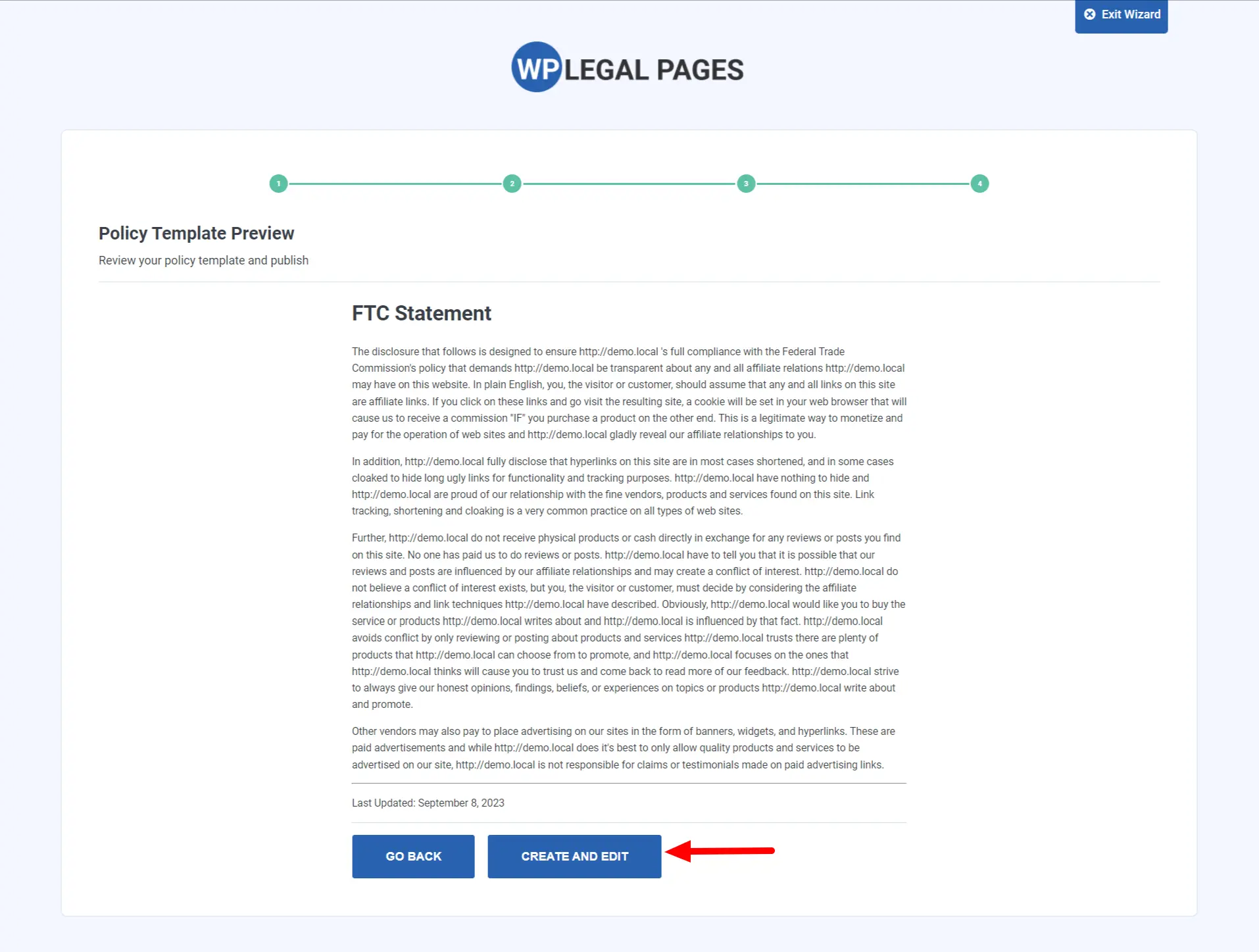
Edit changes and click Publish.
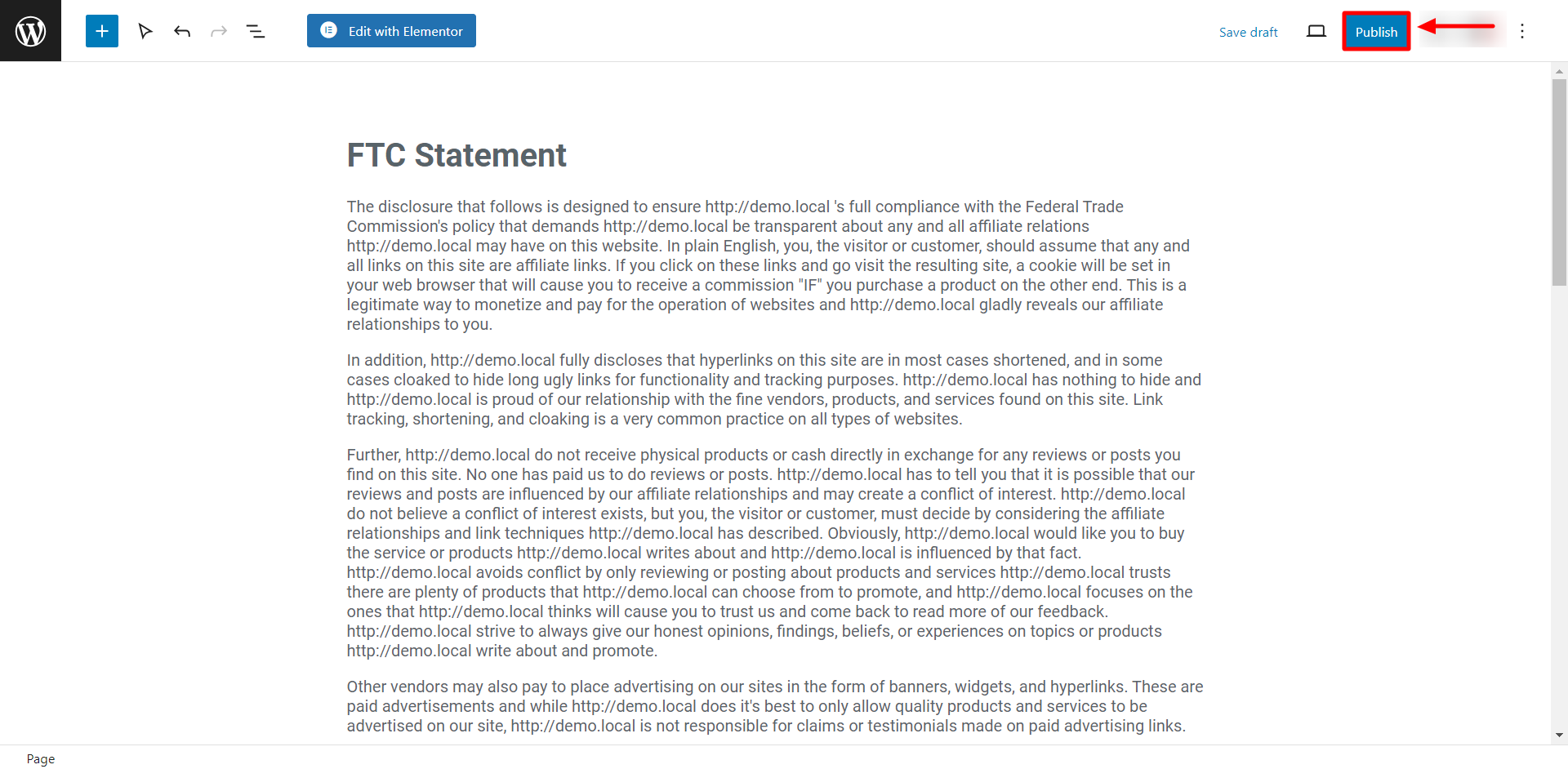
Your FTC Affiliate Disclosure page is now published on your website.
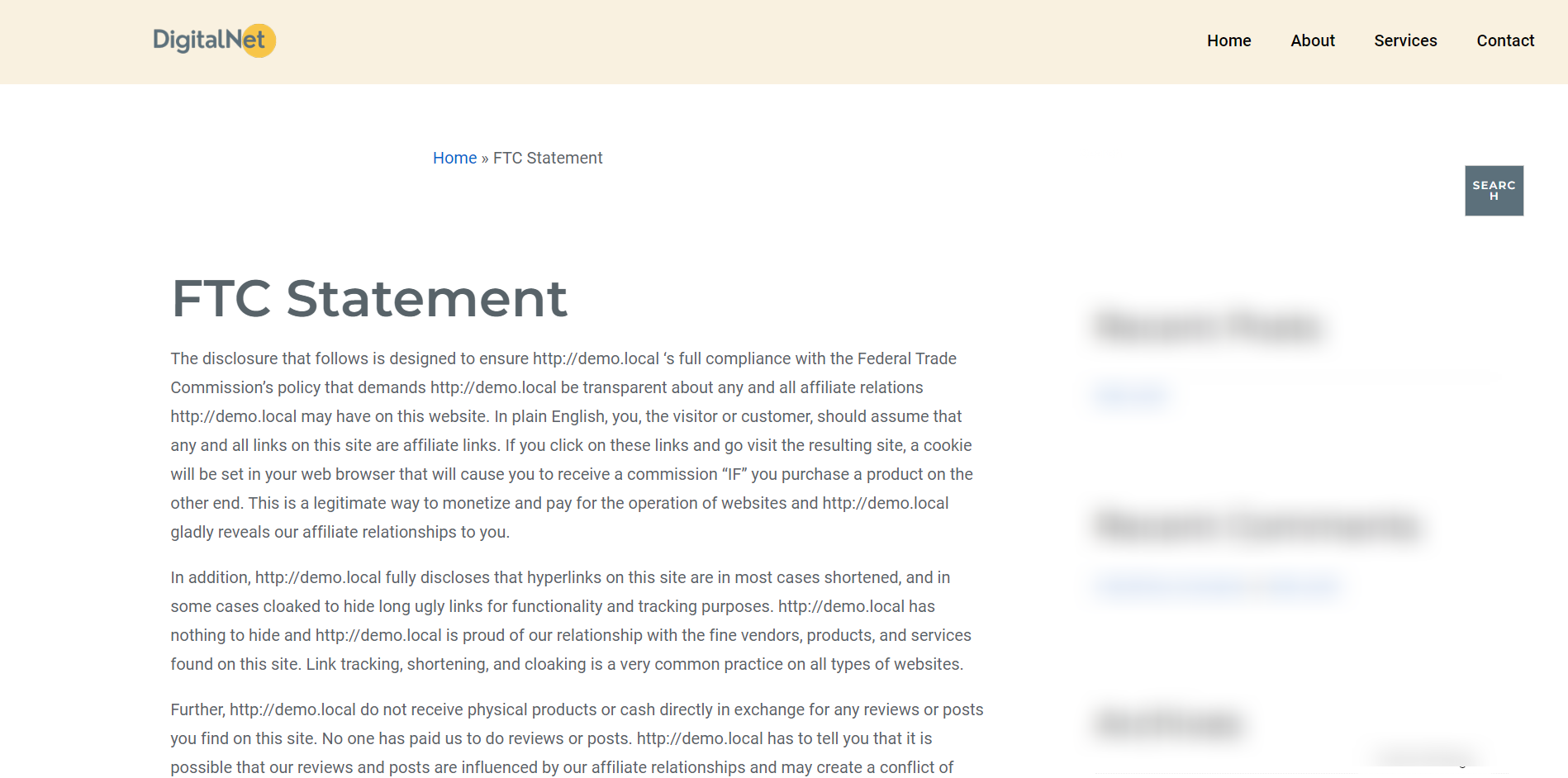
Advanced Features of WP Legal Pages Plugin
While many are familiar with basic functionalities, let’s discover more of what WP Legal Pages has to offer:
- Seamless integration with popular contact form plugins like WPForms, Gravity Forms, Ninja Forms, and Contact Form 7. Using WP Legal Pages you can now display a privacy policy link next to the consent checkbox.
- WP Legal Pages is tailored to cater to the diverse global audience of WordPress website owners by offering rich multi-lingual support.
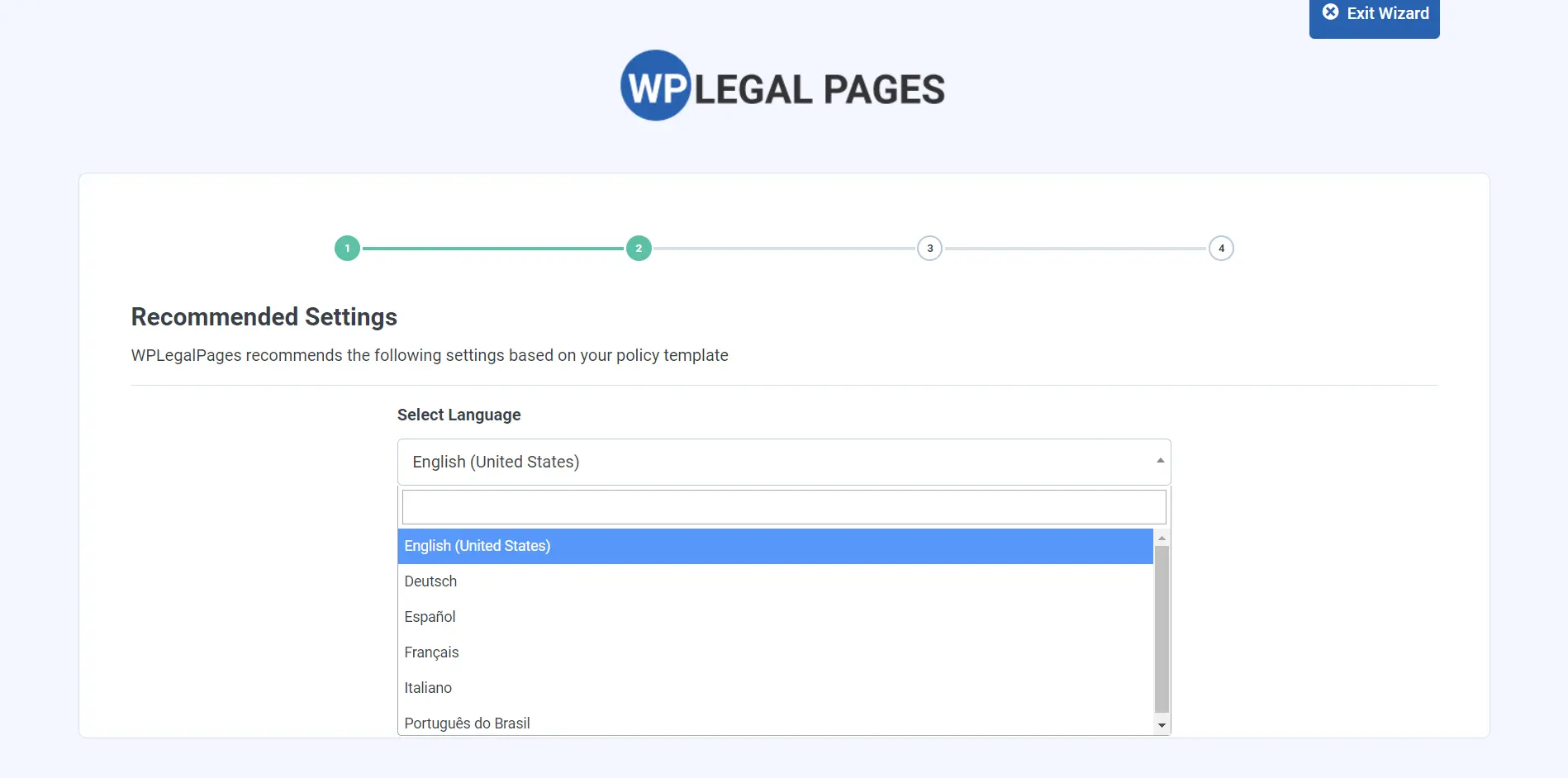
You can translate the available policies in the Wizard to any of these languages – French, Spanish, German, Italiano, Portuguese (Brazil).
With WP Legal Pages, users can easily create and manage legal documentation in multiple languages, ensuring that the websites remain accessible across international markets.
WP Legal Pages offers the following pre-designed templates for your website:
Policies:
- Professional Privacy Policy ( GDPR and CCPA Compliant)
- Blog Comments Policy
- Linking Policy
- Facebook Policy
Disclosures:
- FTC Affiliate Disclosure
- Testimonial Disclosure
- Confidentiality Disclosure
Disclaimers:
- General Disclaimers
- Earning Disclaimer
- Medical Disclaimer
Apart from the mentioned, WP Legal Pages Pro covers almost 25+ necessary policies and pages to keep you legally covered.
Regularly check for updates and revisions to legal templates and policies since it is important to remain up-to-date with legal regulations.
FAQ
An FTC disclosure is a statement that discloses any material connections or financial interests between a content creator and the products or services they endorse or review. Altogether if you receive compensation, free products, or any other form of incentive to promote a product or service on your website, you must disclose this information to your audience.
You have to have an affiliate disclosure policy on your site because it discloses the use of affiliate links on your site from which you earn a commission for any potential sales. FTC requires you to have an affiliate disclosure on your sites so that there is no biased influence on the consumers.
An FTC disclosure should clearly state any financial relationships, affiliations, or sponsorships that could create a biased influence on consumers. Therefore, it should be straightforward and easy to understand, avoiding any legal slang.
Yes, the FTC guidelines apply to various types of content, including videos, emails, social media posts, blog articles, and more. Any content that includes affiliate endorsements should have a related disclosure to maintain transparency with your audience.
An FTC Disclosure is a tool for transparency and compliance with Federal Trade Commission guidelines regarding affiliate marketing and endorsements. Having a clear and proper disclosure can significantly reduce the risk of any legal issues.
Conclusion
The Federal Trade Commission’s guidelines for affiliate marketing and endorsements are clear: transparency is non-negotiable.
WP Legal Pages is a valuable WordPress plugin that offers pre-built templates and customizable options, making it simplified and streamlined.
Whether you’re an affiliate marketer, a product reviewer, or simply someone who occasionally promotes products or services, WP Legal Pages has you covered.
Additionally, FTC Affiliate Disclosures are not just about compliance; they are a tool to foster trust and credibility in the online world.
Your audience expects transparency, and the law demands it. By embracing FTC guidelines and implementing clear and effective disclosures, you not only reduce legal risks but also promote trust with your readers or customers.
In conclusion, WP Legal Pages empower you to navigate the complexities of FTC affiliate disclosure implementation effortlessly, ensuring that you meet legal requirements.
If you’ve liked reading this article, don’t forget to check our other similar articles:
- Essential Legal Pages for Websites: A Comprehensive Guide
- How To Add Privacy Policy In WordPress
- How To Create An Entrepreneur Website with WordPress
- Best Photography WordPress Themes
Grab the WP Legal Pages plugin for creating the best legal pages for websites.

Leave a Reply